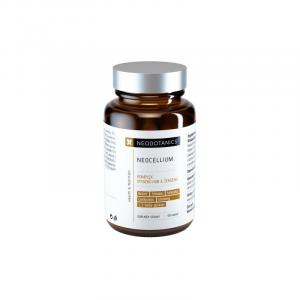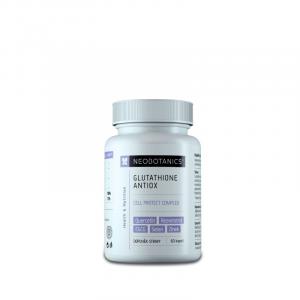
Coffee and the Pancreas: Myths and Facts You Should Know

Coffee and Its Impact on the Pancreas - Truth, Myths, and Caution
For many, coffee is an indispensable part of their daily ritual. It awakens the body, stimulates the mind, and often serves as a social connector – a coffee meeting, morning espresso with colleagues, or a quiet moment with a cup of filtered coffee while reading a book. But what about its impact on health, specifically on the pancreas?
The pancreas, scientifically known as the pancreas, is a small but essential organ. It produces digestive enzymes and hormones like insulin, which regulate blood sugar levels. Any problem with the pancreas – from inflammation to cancer – can have serious consequences. No wonder many articles and discussions focus on the question: Does coffee harm the pancreas, or does it actually help?
What Science Says - Coffee, the Pancreas, and Disease Risk
Research on coffee consumption and its impact on the pancreas is not conclusive. In the past, some studies were linked to an increased risk of pancreatic cancer in heavy coffee drinkers, but more recent and methodologically rigorous research has not confirmed this relationship. For example, a large study published in the Journal of the National Cancer Institute in 2004 showed that drinking coffee is not associated with an increased risk of pancreatic cancer.
On the contrary, some newer studies suggest that coffee may even have a protective effect. It contains antioxidants, especially polyphenols, which may help combat oxidative stress – one of the factors damaging cells, including those in the pancreas. Caffeine may also play a role in regulating insulin sensitivity, which is important for preventing type 2 diabetes, a disease closely linked to the pancreas.
An interesting study from Harvard tracked more than 85,000 women over several years. It found that those who drank 4 or more cups of coffee a day had a lower risk of developing type 2 diabetes. This effect was partly attributed to the positive impact of coffee on pancreatic function and glucose metabolism.
Try our natural products
Coffee Chemistry and the Pancreas - What Happens in the Body?
When we drink coffee, it stimulates the central nervous system, but it also increases the secretion of stomach acids and other digestive juices. The pancreas responds to this situation – it begins to produce enzymes needed for digestion, especially if coffee is consumed on an empty stomach. And this is where some caution arises.
Drinking strong black coffee on an empty stomach can cause irritation of the digestive system, including the pancreas, in some people. Repeated irritation can lead to inflammatory conditions, especially in individuals predisposed to them, for example, due to genetic factors, excessive alcohol consumption, or poor lifestyle choices.
Acute pancreatitis is a condition associated with intense abdominal pain, nausea, and serious complications. Although coffee is usually not the main cause, in people with a weakened pancreas, it can act as a trigger. In such cases, doctors recommend temporarily or permanently abstaining from coffee – at least until the condition stabilizes.
When Coffee Helps - Natural Defense Against Diabetes
As mentioned, one of the main functions of the pancreas is insulin production. If this process does not function properly, diabetes develops. And here, coffee can – paradoxically – have a positive effect. According to research, people who regularly consume coffee have a lower incidence of type 2 diabetes. The reason? Coffee seems to increase cell sensitivity to insulin and simultaneously improve the function of beta cells in the pancreas, which produce insulin.
However, it's important to distinguish between pure, quality coffee without added sugar and unhealthy coffee drinks full of cream, syrups, and whipped cream. These, on the contrary, pose a risk not only to the pancreas but also to overall health – due to their high sugar and saturated fat content.
Coffee, Lifestyle, and a Sustainable Choice
Discussions about coffee often focus solely on health, but the ecological aspect is overlooked. Coffee is one of the most traded agricultural products in the world, but its production also has its dark side. Conventional cultivation often leads to deforestation, excessive pesticide use, and poor working conditions for farmers.
If coffee is already part of the daily ritual, it's worth choosing coffee from organic farming, with Fair Trade certification, or sourced from small farmers. Such a choice supports not only health but also fair and sustainable cultivation without unnecessary environmental burden.
How to Drink Coffee with Pancreatic Consideration? Practical Guidelines
Every organism is different, and what benefits one person may harm another. However, there are general tips on how to enjoy coffee without unnecessarily burdening the pancreas:
- Don't drink coffee on an empty stomach. Having breakfast before a cup of coffee helps protect the digestive system from irritation.
- Less is more. Two to three cups a day are considered a safe amount.
- Monitor body reactions. Heartburn, abdominal pain, or nausea after coffee may indicate the need to reduce the dose.
- Quality over quantity. Avoid instant or cheap blends full of additives.
- Beware of combinations. Coffee with alcohol or a cigarette is extremely taxing on the pancreas.
A real-life example? Fifty-year-old Petr, a manager at a company, got used to drinking five to six cups of strong coffee a day, often without food and under stress. After several months, he began to experience pain in his left upper quadrant, diagnosed as early-stage chronic pancreatitis. After adjusting his diet, reducing stress, and limiting coffee to two cups a day, his condition significantly improved. This case is not unique – lifestyle plays a key role.
As nutrition therapist Karolína Hlavatá reminds us: “Coffee is not harmful in itself. It depends on the amount, context, and individual tolerance. What harms the most is its combination with an unhealthy lifestyle."
Coffee can be part of a healthy and balanced regimen – even with pancreatic consideration. But as with other foods and drinks, the key is moderation, quality, and listening to one's body. If coffee is associated with enjoyment, not dependency, and is consumed in conjunction with an overall healthy lifestyle, there is no need to fear it – not even from the perspective of pancreatic health.





